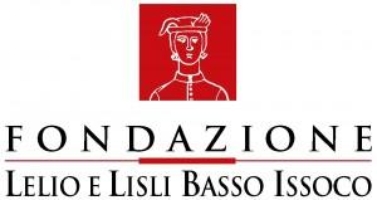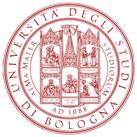Type: Judgment
Authority: European Authorities: European Court of human rights
Date: 06/29/2007
Subject: The applicants, all members of the Norwegian Humanist Association (Human-Etisk Forbund), are parents whose children were at primary school at the time of the events complained of. They are: Ingebjørg Folgerø (1960), Geir Tyberø (1956), Gro Larsen (1966), Arne Nytræ (1963) and Carolyn Midsem (1953).
In the autumn of 1997 the Norwegian primary school curriculum was changed, with two separate subjects – Christianity and philosophy of life – being replaced by a single subject covering Christianity, religion and philosophy, known as KRL (kristendomskunnskap med religions- og livssynsorientering). Under the previous system, parents had been able to apply for their child to be exempted from Christianity lessons; however, it was only possible to request exemption from certain parts of KRL.
KRL was to cover: the Bible and Christianity in the form of cultural heritage and the Evangelical Lutheran Faith (the official State religion in Norway, of which 86% of the population are members), other Christian faiths, other world religions and philosophies, ethics and philosophy. It was also designed to promote understanding and respect for Christian and humanist values and to promote understanding, respect and dialogue between people with different beliefs and convictions.
During the school year 1999-2000, KRL was introduced at all levels in schools.
The applicants and other parents made unsuccessful requests to have their children entirely exempted from KRL. On 14 March 1998 they brought unsuccessful proceedings before Oslo City Court, complaining that their exemption requests had been turned down. They claimed, among other things, that the refusal violated their rights under Article 9 (freedom of conscience and religion) of the European Convention on Human Rights and Article 2 of Protocol No. 1 (right to education), as well as Article 14 (prohibition of discrimination).
The 1998 Education Act, which entered into force on 1 August 1999, provided that: “a pupil shall, on the submission of a written parental note, be granted exemption from those parts of the teaching in the particular school concerned that they, from the point of view of their own religion or philosophy of life, consider as amounting to the practising of another religion or adherence to another philosophy of life”.
On 25 March 2002, four sets of parents (not including the applicants) and their children lodged a communication with the United Nations Human Rights Committee under the Protocol to the 1966 International Covenant on Civil and Political Rights. The Committee found, in the complainants’ case, that KRL, with its rules on exemptions, violated the Covenant.
2. Procedure and composition of the Court
The application was lodged with the European Court of Human Rights on 20 February 2002, was in part struck out and in part declared inadmissible on 26 October 2004 and was declared admissible for the remainder and declared admissible on 14 February 2006. On 18 May 2006 the Chamber dealing with the case relinquished jurisdiction in favour of the Grand Chamber2. A public hearing took place in the Human Rights Building, Strasbourg, on 6 December 2006.
Judgment was given by the Grand Chamber of 17 judges
Complaints
The applicants complained that the refusal to grant full exemption from KRL prevented them from ensuring that their children received an education in conformity with their religious and philosophical convictions. They also complained that the inconveniences resulting from the general aspects of the exercise of the right to partial exemption meant that non-Christian parents were faced with a greater burden than Christian parents, who had no reason for seeking an exemption from the KRL subject, which was designed in accordance with the premises of the majority. In their view this amounted to discrimination. They rely on Article 9 (freedom of conscience and religion), Article 2 of Protocol No. 1 (right to education), Article 8 (right to respect for private life) and Article 14 (prohibition of discrimination).
Decision of the Court
Article 2 of Protocol No. 1
The Court considered that the parents’ complaint under Article 9 of the Convention and Article 2 of Protocol No. 1 fell to be examined under the latter provision, which was specifically directed towards the area of education.
The Court first noted that the intention behind the introduction of KRL had been that, by teaching Christianity, other religions and philosophies together, it would be possible to ensure an open and inclusive school environment, irrespective of the pupil’s social background, religious creed, nationality or ethnic group and so on. This intention was clearly consistent with the principles of pluralism and objectivity embodied in Article 2 of Protocol No. 1.
The relevant provisions of the 1998 Education Act placed emphasis on the transmission of knowledge about not only Christianity, but also other world religions and philosophies. The aim was to avoid sectarianism and foster intercultural dialogue and understanding by bringing pupils together within the framework of one joint subject rather than allowing for full exemption which would result in splitting pupils into sub-groups pursuing different topics.
The fact that knowledge about Christianity represented a greater part of the Curriculum than knowledge about other religions and philosophies could not in itself give rise to an issue under Article 2 of Protocol No. 1. In view of the place occupied by Christianity in Norway’s national history and tradition, this had to be regarded as falling within the State’s margin of appreciation in planning and setting the curriculum.
However, it was clear that preponderant weight was given to Christianity, notably through reliance on the so-called “Christian object clause” in the 1998 Education Act, according to which the object of primary and lower secondary education was to be, in agreement and cooperation with the home, among other things, to help give pupils a Christian and moral upbringing. The difference of emphasis was also reflected in the wording used in the legislation. Moreover, approximately half of the items listed in the curriculum referred to Christianity alone whereas the remainder of the items were shared between other religions and philosophies.
When taken together with the Christian object clause, the description of the contents and the aims of KRL set out in the 1998 Education Act and other texts forming part of the legislative framework suggested that the differences applied to the teaching of Christianity as compared to that of other religions and philosophies were not only quantitative but also qualitative. In view of these disparities it was not clear how the further aim of promoting understanding, respect and the ability to maintain dialogue between people with different perceptions of beliefs and convictions could be properly attained.
The Court then considered whether the possibility for parents to request partial exemption from KRL was sufficient to counter the imbalance noted.
In this connection the Court observed firstly that the practical operation of the partial exemption arrangement gave rise to considerable problems. Thus parents needed to be adequately informed of the details of the lesson plans to be able to identify and notify to the school in advance those parts of the teaching that would be incompatible with their own convictions and beliefs. It must have been difficult for parents to keep themselves constantly informed about the contents of the teaching that went on in the classroom and to single out incompatible parts, particularly so where it was the general Christian leaning of the KRL subject that posed a problem.
Secondly, save in instances where the exemption request concerned clearly religious activities - where no grounds had to be given, it was a condition for obtaining partial exemption that the parents give reasonable grounds for their request. The Court observed that information about personal religious and philosophical conviction concerned some of the most intimate aspects of private life. Although parents were under no obligation to reveal their convictions and the school authorities’ attention was drawn to the need to take due account of the parents’ right to respect for private life, the Court found that there was a risk that the parents might feel compelled to disclose to the school authorities intimate aspects of their own religious and philosophical convictions.
Thirdly, in the event of a parental note requesting partial exemption, the schools were to apply, in cooperation with the parents, a flexible approach, having regard to the parents’ religious or philosophical affiliation and to the kind of activity at issue. Thus for a number of activities, for instance prayers, the singing of hymns, church services and school plays, observation by attendance could replace involvement through participation, the basic idea being that the exemption should relate to the activity as such, not to the knowledge to be transmitted through the activity. However, in the Court’s view, this distinction between activity and knowledge must not only have been complicated to operate in practice but also seemed likely to have substantially diminished the effectiveness of the right to a partial exemption as such. Besides, on a purely practical level, parents might have misapprehensions about asking teachers to take on the extra burdens of such differentiated teaching.
The Court accordingly found that the system of partial exemption was capable of subjecting the parents concerned to a heavy burden with a risk of undue exposure of their private life and that the potential for conflict was likely to deter them from making such requests. In certain instances, notably with regard to activities of a religious character, the scope of a partial exemption might even be substantially reduced by the notion of differentiated teaching. This could hardly be considered consistent with the parents’ right to respect for their convictions for the purposes of Article 2 of Protocol No. 1, as interpreted in the light of Articles 8 and 9 of the Convention. The Court recalled that the Convention was designed to “guarantee not rights that are theoretical or illusory but rights that are practical and effective”.
Moreover the Court was not convinced that the possibility, invoked by the Government, for parents to have their children educated in private schools could dispense the State from its obligation to safeguard pluralism in State schools which are open to everyone.
Against this background, notwithstanding the many laudable legislative purposes associated with the introduction of KRL in the ordinary primary and lower secondary schools, Norway could not be said to have taken sufficient care that information and knowledge included in the curriculum be conveyed in an objective, critical and pluralistic manner for the purposes of Article 2 of Protocol No. 1.
Accordingly, the refusal to grant the applicant parents full exemption from the KRL subject for their children gave rise to a violation of Article 2 of Protocol No. 1.
Article 14 taken in conjunction with Articles 8 and 9 of the Convention and Article 2 of Protocol No. 1
Having regard to its findings in relation to Article 2 of Protocol No. 1 taken alone, the Court did not find it necessary to carry out a separate examination in relation to Article 14 of the Convention, taken in conjunction with Articles 8 and 9 of the Convention and Article 2 of Protocol No. 1.
Parties: Folgero e altri c/ Norvegia
Classification: Freedoms - Art. 14 Right to an education



 Europeanrights.eu
Europeanrights.eu








